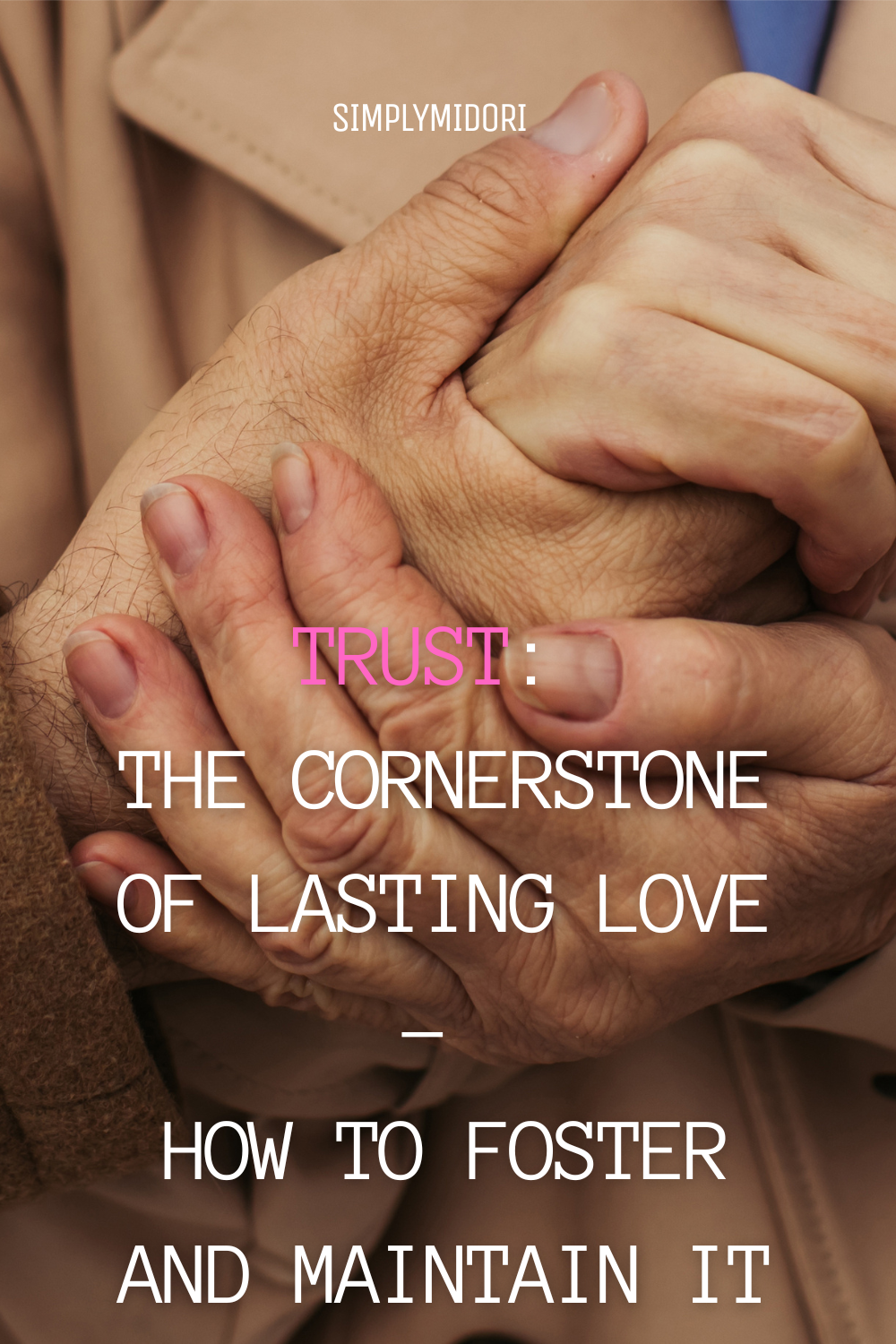The 4 Detrimental Fighting Habits That Lead to Divorce Pt. 2
Four Fighting Habits That Will Lead to Divorce:
-
Part 1: Escalation
-
Part 2: Invalidation (You’re Here!)
-
Part 3: Negative Interpretations
-
Part 4: Withdrawal and Avoidance
Hey there, readers! Welcome back to the series on the four fighting habits that will lead to divorce. Last time, we talked about the first habit – ESCALATION – and how it can quickly spiral out of control in a relationship.
Today, we’re diving into habit number two: invalidation.
Have you ever been in an argument with your partner, only to feel like they do not hear you? Or worse, like they don’t care about your feelings? That’s invalidation, folks – and it’s a big problem in many relationships.
Invalidation can take many forms, from dismissing your partner’s emotions (“You’re overreacting!”) to outright name-calling (“You’re such an idiot!”). It can be subtle or overt. It all boils down to one thing: not respecting your partner’s feelings or opinions.
Invalidation is a communication pattern where one person will negatively attack another person’s feelings, thoughts, or character. This can be done in both indirect and direct ways.
Understanding Direct Invalidation: An Example
MIDORI: (irritated) Have you taken any of your medicine this week?
JOSHUA: (bothered) No, I haven’t.
MIDORI: (visibly irritated) Also, did you schedule your doctor’s appointment yet? You were supposed to go two weeks ago? LET ME GUESS… NO. (eye roll)
JOSHUA: (feeling attacked) Someone clearly woke up on the wrong side of the bed today.
MIDORI: (becoming angry) No, I am fine; you’re just irresponsible. You have kids, but apparently, you’re fine with dying.
JOSHUA: (hurt) That’s a stretch. (dripping with sarcasm) I’m sorry. I forgot what good fortune I have; by golly, I am married to the pinnacle of responsibility. (rolls eyes) You can’t even keep your purse organized.
MIDORI: That’s probably because I can’t focus on myself because I am always cleaning up behind you and your irresponsible decisions.
JOSHUA: You’re an arrogant douche.
In the example above, Joshua felt attacked and started attacking Midori’s character. When invalidation becomes an attack on someone’s character, the relationship will suffer extreme destruction. Soon, both people will feel contempt for each other, and they are destined for an ugly divorce.
Understanding Indirect Invalidation: An Example
This second example shows how invalidation can play out indirectly. While this is not as destructive as direct invalidation, any invalidation will place barriers in the relationship.
MIDORI: (distraught) Joshua, do you even love me?
JOSHUA: (confused) Midori, of course, I love you; where is this coming from?
MIDORI: (still distraught) I don’t feel like we ever see each other, especially since you took that job.
JOSHUA: (thinking here we go again, but wanting to avoid an argument) Well, when would you like to hang out? How about right now?
MIDORI: (sighing) You don’t get it! I don’t need a quick fix; I need continual time with my husband.
JOSHUA (annoyed): Babe, you’re exaggerating, we see each other all the time, and it’s not like I’m out partying; I am trying to establish a life for our family. A little appreciation here would be great!
MIDORI: ….(turns away)
If this type of invalidation continues, Midori will begin to believe that her husband does not care for her. Inevitably she will start to develop frustration and bitterness toward him. Indirect invalidation is a poison that will undermine the relationship’s foundation.
Invalidation: The Poison That Kills Relationships
In both examples, Midori begins feeling more and more like a stranger in her home. Her husband, Joshua, used to be so attentive and loving, but lately, he seems distant and uninterested. It’s not just the lack of physical affection that bothers her; it’s how he dismisses her feelings and opinions as if they don’t matter.
Little does she know, Joshua is guilty of both direct & indirect invalidation, a toxic behavior that can erode even the strongest relationships. Every time he brushes off her concerns or argues with her over trivial matters, he sends a message that her thoughts and emotions are not valid.
At first, Midori will attempt to brush off these incidents, but over time, they will take their toll.
She will start to feel like she’s walking on eggshells, afraid to speak her mind and risk being dismissed or belittled.
Joshua doesn’t realize that his behavior is slowly pushing Midori away. The resentment and bitterness grow as she begins to believe he doesn’t care for her.
Eventually, the resentment will turn into anger leading to escalation and even more severe problems in your relationship.
Soon, she’ll be looking for a way out of the relationship.
Walking a Mile in Their Shoes: The Power of Validation
Have you ever argued with someone that left you feeling frustrated and misunderstood? Maybe you were so caught up in your perspective that you couldn’t see the other person’s point of view. It happens to the best of us, but a powerful tool can help prevent these kinds of conflicts: validation.
Validation is the art of putting yourself in someone else’s shoes and acknowledging their perspective. It’s not about agreeing with them or giving up your beliefs, but showing them that you respect and understand where they’re coming from.
And let me tell you; it’s not always easy.
In any relationship, there are moments when you do not see eye to eye. Sometimes these become heated debates.
In these moments, we become so convinced that our point of view is right that we can’t even entertain the idea of the other person being right.
But as the argument goes on, one person must practice validation to shift the perspective.
Practical Steps to Use Validation
Take a deep breath and try to see things from the other person’s perspective.
Stop arguing and start asking questions to understand their viewpoint.
Listen to their answers.
Understand their reasoning.
If we do this, do you know what will happen?
The other person will feel heard and respected, allowing you to progress in the conversation.
Marriage is not about changing each other’s minds but acknowledging each other’s humanity.
Now we know practicing validation is not easy. And it’s especially tough when you’re angry or frustrated, as it requires humility, empathy, and a willingness to be vulnerable.
However, if you can put your own ego aside and genuinely listen to your spouse, the payoff is worth it! Not only does validation prevent conflicts, but it also builds trust and strengthens relationships.
Understanding Validation: An Example
How validation plays out in the first example:
MIDORI: (irritated) Have you taken any of your medicine this week?
JOSHUA: (bothered) No, I haven’t.
MIDORI: (visibly irritated) Also, did you schedule your doctor’s appointment yet? You were supposed to go two weeks ago? LET ME GUESS… NO. (eye roll)
JOSHUA: This really upsets you, doesn’t it?
MIDORI: You bet. I want to know that you are going to be there for me, and when you miss an appointment that I’m anxious about, I worry about us.
JOSHUA: I understand why it would make you worried when I don’t take care of myself. I promise to take my health more seriously from here on out.
WOW! What Happened?
Midori’s visible irritation can upset Joshua. When Joshua saw Midori’s body language combined with her eye roll, we can assume his blood started to boil. But instead of lashing out, he took a deep breath and paused momentarily.
He looked at Midori and realized a wounded heart was behind her words and body language. He saw the fear and pain in her eyes and knew he had a choice to make.
Joshua decided to come alongside Midori as a teammate. He validated her feelings and listened to her story. He showed her he cared about her; instead of focusing on the comment that hurt him.
It wasn’t easy, but Joshua’s empathy and compassion transformed the situation. Instead of escalating the conflict, he was able to diffuse it and connect with Midori on a deeper level.
Remember, hurting people hurt people. Invalidation only fuels the fire. But when we choose to see beyond hurtful words and actions, we can build bridges of understanding and compassion.
How validation plays out in the second example:
MIDORI: (distraught) Joshua, do you even love me?
JOSHUA: (confused) Midori, of course, I love you; where is this coming from?
MIDORI: (still distraught) I don’t feel like we ever see each other, especially since you took that job.
JOSHUA: (thinking here we go again, but wanting to avoid an argument) Well, when would you like to hang out? How about right now?
MIDORI: (sighing) You don’t get it! I don’t need a quick fix; I need continual time with my husband.
JOSHUA: (frustrated but self-controlled) I apologize, babe. I didn’t realize the extent of your frustration with my current work schedule. I wish I didn’t have to be gone so much, either. This crazy schedule will be over soon, but until then, I will be intentional where I can. We will get through this together.
MIDORI: (hugs him) Thank you, Joshua; it gives me such peace to know that you care about what I care about.
In this example, similar to the first one, we see Joshua has a split second to make a choice, attack, or validate. His choice to validate drastically alters the remainder of the conversation!
Conclusion
There are many everyday situations when your spouse’s feelings and thoughts are put down. If this repeatedly happens in a marriage, there will soon become an impassible barrier in the relationship.
In the first example, what Midori said might not have changed the fact that Joshua still got to work those hours, but instead of putting down her feelings, he came alongside her and acted as her teammate.
Remember: coming alongside the person and letting him know you care about their feelings and want to be there for them is the best way to prevent destructive patterns from forming in your relationship.
Fighting for Your Marriage states that invalidation is one of the biggest indicators for future marriage problems and future divorce.
Validation is the best tool that you have to fight this relationship destroyer. Be alert for this deadly form of communication, and work hard to make validation a part of your everyday communication.
To be continued…












